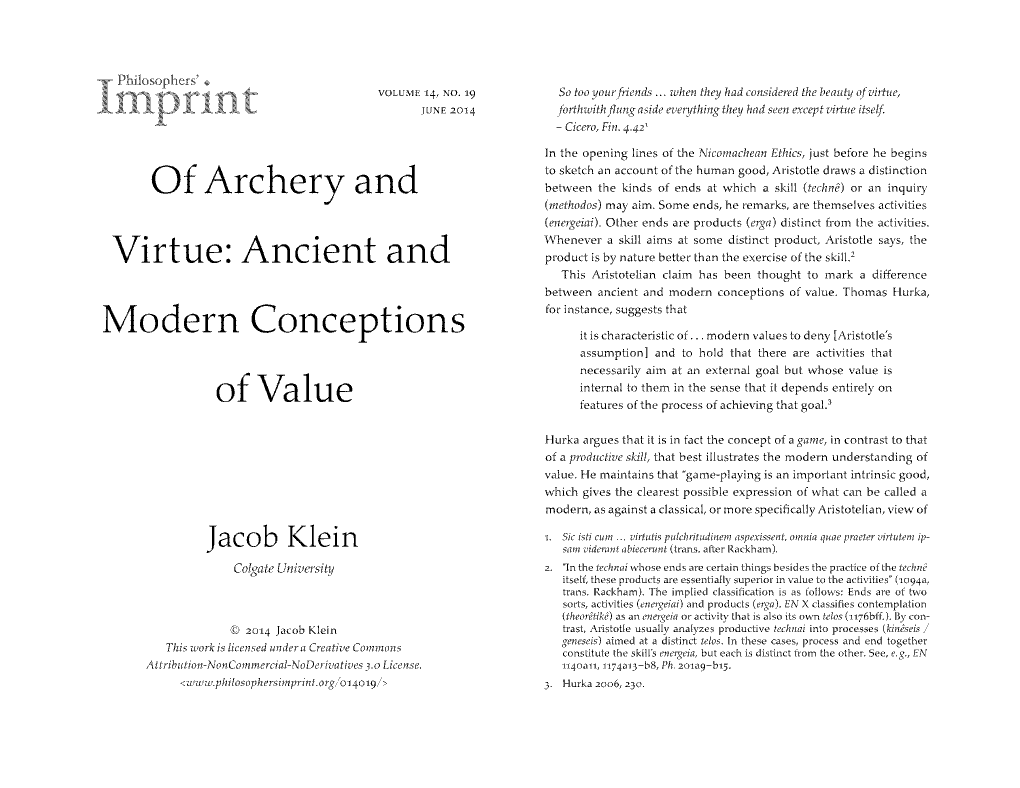Of Archery and Virtue: Ancient and Modern Conceptions of Value
Skip other details (including permanent urls, DOI, citation information): This work is licensed under a Creative Commons Attribution-NonCommercial-NoDerivatives 3.0 License. Please contact [email protected] to use this work in a way not covered by the license.
For more information, read Michigan Publishing's access and usage policy.
Abstract
I argue that comparisons of Stoic virtue to stochastic skills — now standard in the secondary literature on Stoicism — are based on a misreading of the sources and distort the Stoic position in two respects. In paradigmatic stochastic skills such as archery, medicine, or navigation the value of the skill’s external end justifies the existence and practice of the skill and constitutes an appropriate focus of rational motivation. Neither claim applies to virtue as the Stoics understand it. The stochastic model of virtue almost certainly originated with Carneades and should be distinguished clearly from the Stoic account. Doing so clarifies the Stoic position and shows that it anticipates what Thomas Hurka calls a modern view of value.



